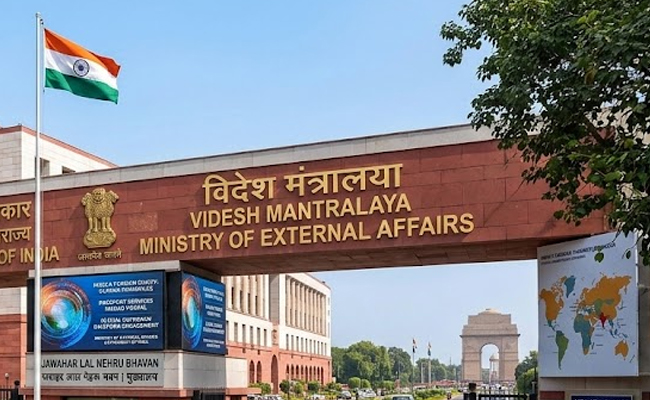London, May 26 : Actor Hugh Grant finally married at 57 his Swedish girlfriend Anna Eberstein, 39, in an intimate ceremony. The married on Friday amid close-knit family and friends at Chelsea registry office, reports mirror.co.uk.
"The Four Weddings and a Funeral" actor wore a sleek navy blue suit, while Eberstein dressed casually in a powder blue shirt and short white skirt that featured a thick black belt. While Eberstein was wearing a modest gold band, Grant's large, ornate ring featured three dramatic red stones.
Following the ceremony, the newly married couple, along with Eberstein's parents and two brothers, Grant's father and brother and their two eldest children, travelled in chauffeur driven cars to carry on the celebrations at an unknown location. The nuptials were said to have come as a surprise to many of his close friends, who thought he would never marry.
He himself once called marriage "unromantic", saying: "Do I think humans are meant to be in a 40-year-long faithful relationship? No, no, no."
Grant and Eberstein also share son John, five, and a daughter, two, whose name is not known.
Let the Truth be known. If you read VB and like VB, please be a VB Supporter and Help us deliver the Truth to one and all.
New Delhi (PTI): SpiceJet will operate eight special flights from Fujairah in the UAE on Wednesday to bring passengers who are stranded due to the Middle East crisis.
In a statement on Wednesday, the airline said it would operate four services to Delhi, three to Mumbai and one to Kochi from Fujairah.
On Tuesday, the carrier operated four special flights from Fujairah to Delhi, Mumbai and Kochi.
The escalating Middle East conflict involving US, Israel and Iran has significantly disrupted flight operations in the region.





